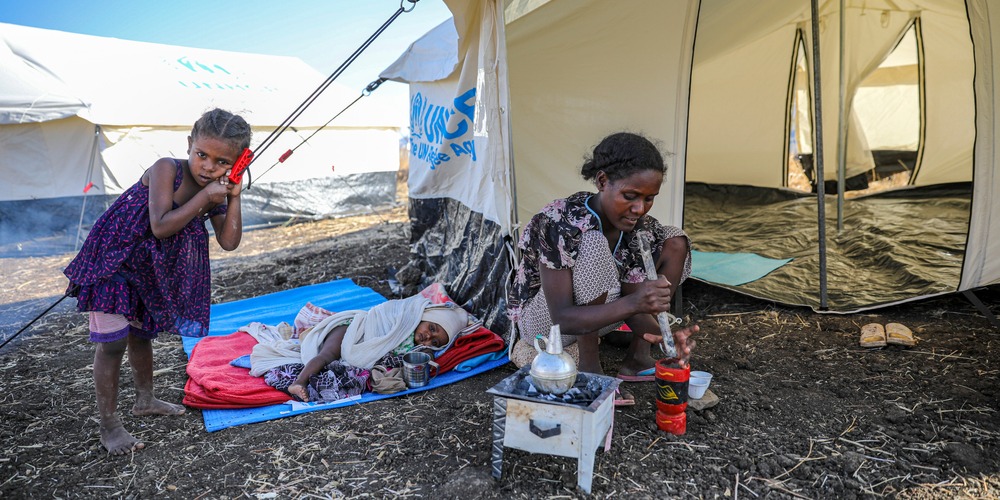U.N. Refugee Agency eyes 10% non-MENA contributions as its zakat fund goes global
The United Nations Refugee Agency is targeting 10% of all Islamic philanthropy contributions to it to come from outside the Middle East this year as its zakat fund starts to develop engagement in other regions.
UNHCR's Refugee Zakat Fund, that launched in 2019, reported a 12.5% increase in donations to $48.58 million last year, and another $12.92 million were collected as sadaqah. Around 3% came from donors outside the Middle East and North Africa, Shadi Ghrawi, senior faith-based philanthropy officer, told Salaam Gateway.
The U.N. body is tackling three key areas to achieve its intended 7% increase in non-MENA contributions: awareness, endorsement, and localisation.
“It has been, and remains, crucial for UNHCR to raise awareness about the strong link between zakat and refugees/internally displaced persons as eligible beneficiaries, especially in terms of vulnerability criteria that prioritises support to the most vulnerable displaced families across the world,” said Ghrawi.
Last year, beneficiaries were based in ten countries, four of which sit outside the MENA region: Niger, Pakistan, Bangladesh, and India. The others were Yemen, Jordan, Lebanon, Egypt, Mauritania and Iraq.
This year, outside of the Middle East that remains an important focus, UNHCR is targeting donors from Malaysia, Indonesia, Singapore, Australia, USA, Canada, UK, Nigeria, Kenya and South Africa, said Ghrawi.
Recent endorsements from two agencies may help in Southeast Asia and North America. In Malaysia, the International Shari’ah Research Academy for Islamic Finance gave its nod to the zakat fund in March and the Canadian Council of Imams said yes to it earlier this month.
The U.N. body has also boosted its own capacity, hiring specialists in specific regions. “We now have a network of Islamic Philanthropy colleagues in MENA, Asia, North America and Africa to accelerate the implementation of UNHCR’s global Islamic philanthropy strategy,” said Ghrawi.
Other considerations, such as issuing tax receipts for donations are being worked out, although Ghrawi said this has not been a major hurdle in execution.
“It is sometimes a challenge in countries where UNHCR has no presence or isn’t able to issue tax receipts, an area that UNHCR is looking into in certain localities,” said the Dubai-based official.
The agency has tax receipt arrangements in place in most of its relevant jurisdictions, either through its direct presence in a country, or through the establishment of a locally-registered charity that performs fundraising operations on its behalf.
Zakat donations to UNHCR last year covered approximately 20% of its expenditure on zakat-compliant activities in 10 countries, it said in its annual zakat report last month.
The agency projects $2.7 billion is needed this year in countries where it can distribute zakat, to assist 24.2 million persons.
Longer-term, UNHCR wants Islamic philanthropy to contribute up to 15% of its goal of $1 billion from the private sector by 2025, said Ghrawi. It’s aiming for 50% of zakat and sadaqah funds to come from non-MENA donors in 2025.
© SalaamGateway.com 2021 All Rights Reserved
